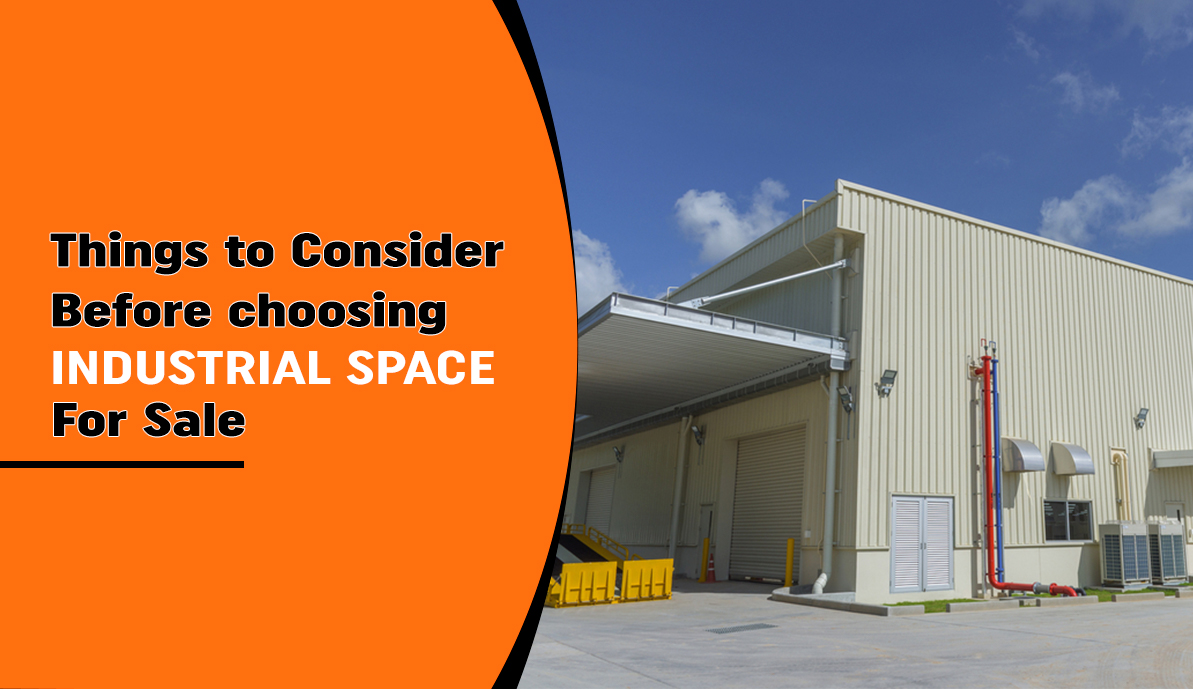People think of general warehousing when it comes to business. Do you know that warehousing services have evolved with time? You must look for multiple specializations based on the kind of business you run. If you are interested in learning about any Industrial Office Space For Sale that delivers well to your customers, you must consider some essential factors other than its location. You must choose based on your current and future requirements. If you are unsure of what you will need for your business five years down the line, read this article, as you wouldn’t want to miss out on these critical aspects while choosing your industrial office space.
Understand your needs to opt for the exemplary warehousing service
Modern supply chains, efficient storage facilities, and exceptional handling of goods have reinvented the warehousing concept. Warehousing services are increasingly adopting ideas emphasizing homogenous storage options. Therefore exploring the available warehousing options and adopting the services based on the specific needs amplifies your business.
General warehousing
You can expect a fair amount of specialization in
general warehouses are based on the nature of your business or industry. Food manufacturers and companies that store environmentally sensitive materials, such as cleaning products, lithium batteries, and pharmaceuticals, require specific safety equipment for handling and inventory. However, they don’t demand premium charges for proximity to transportation and target customer clusters.
Flex space
Flex spaces are designed to provide warehousing spaces based on tenant flexibility for small and mid-size companies. Suppose you want office and warehouse space with a much more affordable budget for two separate leases and properties. In that case, you must invest in the areas that offer specific needs, such as manufacturing, storage, and displaying the end products from the same facility.
If you involve all the operations, you can have all the employees within the same facility and have improved communication between the departments, thereby enhancing productivity.
Manufacturing facilities
The manufacturing facilities come with about 20% of dedicated office space, space for loading docks, heights of about 10 feet or more, or other variations that suit your business and would be a great production plant. If your business doesn’t have an efficient manufacturing space, you can’t serve your customers on time. More importantly, you can’t build your brand value when you cannot demand customer service.
While choosing manufacturing facilities, you have to select the space based on the size of the equipment and the number of materials stored during the manufacturing process. Categorize yourself under two circumstances: Heavy industry and light industry. Heavy industry involves large plants with large footprints, huge types of machinery, and materials in massive quantities. The end products are also categorized as heavy-duty products that use three-phase electrical power for their production and ample dock space for efficient logistics. Such industries demand considerable customization, and processes involve bulk deliveries. For instance, meat-packing companies, semiconductor producers, and refineries are considered large industries.
On the other hand, in the light industries, the product or material handling equipment might differ from the heavy industries. Light industries would need only hand pallet jacks, conveyors, and carts as they don’t involve heavy-duty machinery or massive materials in their manufacturing process. Therefore they would not need heavy-duty forklifts or cranes. The manufacturing facilities and warehousing services are two different aspects. However, they are combined to create efficient and cost-effective operations.
Therefore considering the designing and manufacturing facilities within the warehousing environment is crucial for both types.
Furthermore, consider factors such as lighting, climate control options, and safety.
For instance, look for these facilities in industrial manufacturing and warehousing services:
Lighting
Manufacturing facilities require adequate lighting to ensure safety, optimized productivity, and quality control checks. Some developed warehousing facilities offer options in lighting that include:
Task lighting is the kind of lighting that illuminates specific areas such as workstations, assembly lines, and machinery. The lighting helps the workers to work efficiently and safely.
General lighting is used to illuminate the entire facility, including LED lighting, fluorescent lighting, and others. The primary purpose is to offer a safe and comfortable working environment.
High-bay lighting is deployed in high ceilings and is significantly used in warehouses and distribution centers.
Natural lighting is used to reduce artificial lighting and manage operational costs. If you find any affordable Industrial Properties For Sale and your business doesn’t include any specifications in terms of temperature control or pest control, you can easily opt for the natural lighting manufacturing facility and distribution center to cut down your operation costs.
Almost every warehousing service has lighting controls that use timers, occupancy sensors, and dimming switches that help optimize energy.
Climatic control
Meat cut, food, and pharmaceutical industries depend highly on climatic control. They are achieved using sufficient ventilation, air conditioning, HVAC systems, and other automation systems. Thus you must ensure the efficiency of temperature and humidity control and automation facilities in the warehousing spaces.
Utilities
Water, electricity, and gas are the prime utilities you might need for your manufacturing facilities; if you rent both industrial office space with a warehousing facility, you might expect a cost reduction for adopting two services.
Conclusion
Some premium industrial warehousing options include research and development facilities, optimized storage, manufacturing facilities, office space, and significant others. Additionally, some well-developed warehousing service providers offer automation and customization of services based on industrial requirements and development. Moreover, they also offer data centers, cloud storage, and security protocols that suit modern commerce.









